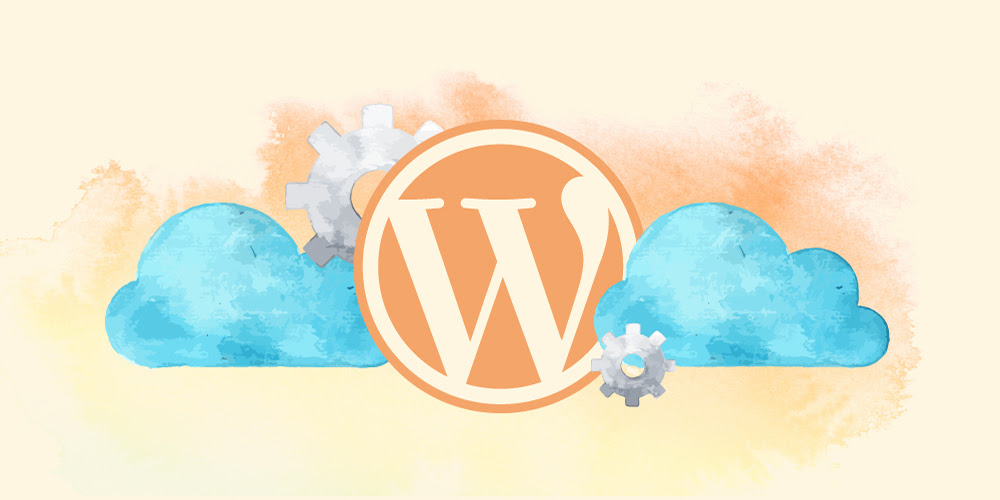This is an archived edition of MasterWP from February 9, 2022, written by Alex and Ben.
Hello from Alex and Ben!
We have exciting news to share: last week’s issue marked us entering the 5th year of writing MasterWP (the first issue was on the 1st of February 2017 – I’m amazed I still use the two apps we mentioned in that email) and it’s been a fantastic experience. We often hear MasterWP is the only newsletter people read every week, and we very much appreciate your time and attention.
5 years is a long time to write about WordPress news, and we’ve been exploring how we can ensure the future of the newsletter. We’re thus very pleased to announce Rob Howard and his team have acquired MasterWP.
Rob’s team has the perfect mix of journalism, development, and WordPress experience to take over the newsletter. You may know them from their successful acquisition and reinvigoration of the Understrap theme framework last year.
MasterWP will remain your high quality source of independent WordPress news and analysis. Rob and his team are planning on dedicating more time and more resources to the newsletter, to give you even better analysis every week. This week is our final issue as lead authors, and we’ll be doing a joint issue with Rob next week. Rob and his team will then be taking over. Thanks for reading! – Alex and Ben

The Complicated Futility of WordPress
The block editor is unequivocally the future
Gutenberg and the evolution of the WordPress editor has been one of the permanent and defining stories in WordPress over the last 5 years. This newsletter started taking off in 2017 when Ben and I started discussing topics around how the new editor developed, who it was for, and how that was communicated with the community. The ship has sailed on those arguments now – the block editor is unequivocally the future of WordPress.
Posts like the one I’ve linked need to be seen in this historical context: there was a moment where there was debate about the future of the editor and, accordingly, the future of WordPress. I don’t think that debate was ever serious debate, though. Events like the forking of WordPress to make ClassicPress have come and gone. I don’t know about you, but I haven’t heard anything about ClassicPress for years.
The author of the post I’ve linked complains that Full Site Editing will let “interns” mess with their professional site. I take the point, but I do query whether letting the ultimate end-users make changes without needing a developer to help is such a bad thing.
I built a WordPress site for a local charity about 10 years ago, and last week I got an email from them because nobody could work out how to change the footer. If they were using a modern WordPress setup, they’d be able to do it themselves. If they can’t do it themselves with WordPress, they’d be tempted to switch to one of these shiny site builder platforms they keep seeing ads for. Only time will tell if the block editor is a success, but I do increasingly feel it will be looked back on as a difficult but totally necessary period that secured the future of WordPress. – Alex.

A deep Introduction to WordPress Block Themes
Looking Forward
Block themes are the direction themes are heading, and this article is a surprisingly complete look at what they are and how to make them. Since you’re reading this newsletter it’s very likely that you know at least some of this but it covers a lot of ground and if you haven’t gotten into block theme development yet then this is a great primer.
The new Twenty Twenty-Two theme is a very attractive theme, and shows off the potential of the block themes system. There’s a really nice collection of block themes building on the WordPress.org theme repository and they all have a level of design consistency that was sometimes missing before.
I suspect this is because the very nature of using the block editor for building themes introduces a design consistency that you wouldn’t have building themes the traditional way. It’s like a built in Design System – and in my opinion, this is a great advance.
It could also be that the people who are building block themes at the moment are really good at design, but I think the block editor is helping. By defining fonts, colours, borders etc in theme.json it’s making the process of choosing those different elements a lot simpler, and this makes the design consistent, which in turn makes the design more attractive.
There’s still a concern that designs will become homogenised, but designs like Anders Norens Tove shows that they don’t have to be – we just have to put in a bit more effort to make something special and I am looking forward to seeing how people stretch the systems to make unique things. – Ben.

How we analyse 20,000 keywords a month for WordPress SEO clients with FALCON AI
Moving beyond hit-and-miss SEO
I’ve spent a lot of time in the last 12 months working on Ellipsis’ FALCON AI. I had to upgrade one of our APIs last week as we’d hit a limit. I looked more closely at the numbers, and in January we analysed 20k possible keywords for our clients, for the first time. We’re producing about 40 pieces of content/month, so we’re considering 500 keywords for each keyword we put into production.
Most keyword research results in hit and miss results, what we’re calling “hit and miss SEO”: some of your posts work, but it’s random and you don’t get any insight into why they have or haven’t worked. It’s hit and miss.
Especially with FALCON AI, we’re aiming to eliminate the misses and only do the hits. This post goes deep into the weeds of how we’re using Machine Learning to make those predictions, and how our setup with the AI all works. Since we introduced FALCON AI last year, we’re now using 28x the quantity of data. It’s been a real treat working on this. We’re delivering more value with AI and Machine Learning than the vast, vast, majority of businesses, and I’m looking forward to more of it. – Alex.

A Visual History of WordPress
Looking Back
I don’t know if it’s just because we’re passing MasterWP on to new stewards, but I’ve been feeling quite nostalgic these last few days, which makes this look back at WordPress over the years even more interesting.
I’ve been using WordPress since 2005, so I’ve seen most of these changes in real time. It’s interesting (to me at least) thinking back and remembering what I was doing with WordPress at the different stages of the website and the platform.
My favourite time period for WordPress was 2008(ish), when the design felt warm and homely. It also happens to be the year that we released my themes site, Pro Theme Design. I feel like that time in WordPress was full of creativity and innovation coming from the community. These days there is definitely still creativity but we haven’t seen the leaps we used to – largely because WordPress is now more fully featured.
However Gutenberg, and FSE, are now pretty new, and they are iterating quickly. Both WordPress and the WordPress site are entering a new phase so I hope that we will start seeing more of the innovation we used to see. In the early days new ideas happened because WordPress was missing a lot of features, but now we have a brand new site editor and so we need people to stretch it in weird ways and show what it’s capable of. – Ben.

Gee, I wonder how Apple Podcasts suddenly became a five-star app
Please leave us a review!!
I enjoyed this post: Apple Podcasts was until recently a 1.8 star app that has been “remarkably buggy”. That was until recently, when people started leaving reviews for the app thinking they were reviewing their favourite podcasts instead. Apple Podcasts is now all of a sudden a 5 star app. Apple is, apparently, in no hurry to fix this issue. – Alex.
Quick links
Why introverts make exceptional designers & how leaders can support them
Reducing The Web’s Carbon Footprint: Optimizing Social Media Embeds
“The most valuable thing you can make is a mistake – you can’t learn anything from being perfect.”
— Adam Osborne

